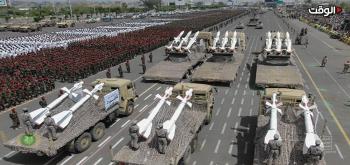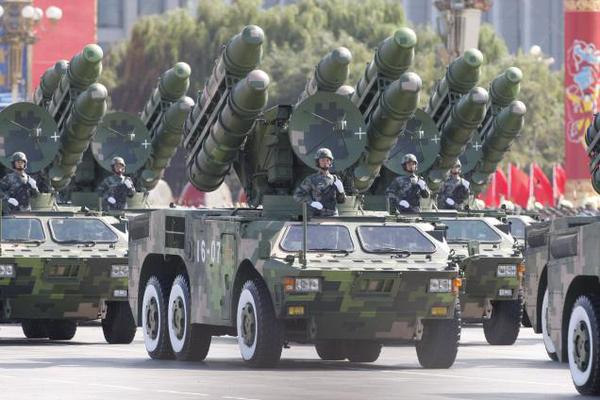Alwaght-A high ranking Chinese government official has issued a stern warning to the United States that it should stop its provocative mission in the South China Sea.
Speaking to a small group of reporters in Beijing on Thursday, a high-ranking Chinese official made his warning clear: The US should not provoke China in the South China Sea without expecting retaliation.
"The Chinese people do not want to have war, so we will be opposed to [the] U.S. if it stirs up any conflict," said Liu Zhenmin, vice minister of the Ministry of Foreign Affairs. "Of course, if the Korean War or Vietnam War are replayed, then we will have to defend ourselves."
"We rely heavily on the South China Sea [for] transportation of resources and energy and the South China Sea is an important trading group for us. We attach great importance to peace and stability in the South China Sea," said Liu, who warned the United States that it "cannot circle China by building military bases — we cannot do so 30 years ago, or even now."
"Chinese people and the government feel like we haven't been treated fairly because the US is blaming China for rising tensions in the South China Sea," said Liu, who added that "what matters is that the US government has recognized that times have changed, [and the US] can gain much more through cooperation than going to war."
The increasingly active US military presence in the South China Sea region is fanning tensions in the region, and fueling concerns that it may lead to a tipping point in China-US ties.
On Tuesday, a US EP-3 spy aircraft undertook close reconnaissance near Hainan Island forcing two Chinese fighter jets, which maintained a safe distance from the aircraft, to track and monitor its activities.
US flag-bearing warships and military aircraft have been engaged in reconnaissance in the guise of "freedom of navigation and flyover."
Last week, the guided-missile destroyer USS William P. Lawrence sailed within 12 nautical miles of Yongshu Jiao in the Nansha Islands without Chinese permission: A clear violation of China's sovereignty.
This incident, which occurred close to Hainan Island, brings a similar event to mind. On April 1, 2001, a U.S. EP-3 reconnaissance aircraft caused a Chinese fighter jet to crash in waters off Hainan, leading to the most serious diplomatic crisis between the two countries in decades.
The current military action in the region aggrandizes the chances of history repeating itself.
As it has yet to shake off its Cold War mentality when dealing with China, the United States seems intent on preventing a rising China from challenging its hegemony. This outlook is the root of its policies related to the South China Sea.
This mentality is outdated as peace and development are aspirations shared by both sides.
What would be the consequence should Chinese and US aircraft collide over the South China Sea again, or similar incidents occur on the water between warships of the two countries?
Speaking on Friday, Chinese Ambassador to Britain Liu Xiaoming said "We have always approached the disputes in a constructive and responsible manner. If China had not maintained self-restraint, the South China Sea would not be what it is today," he told his audience.
Expounding on China's position and policy, Liu said that the islands and reefs in the South China Sea have belonged to China since ancient times.
In a speech at the International Institute for Strategic Studies in London, Liu said that the islands and reefs in the South China Sea have belonged to China since ancient times.
China was the first to discover the islands in the South China Sea, the first to name the islands, the first to exercise administrative jurisdiction in the South China Sea, and also the first to develop the islands, he said.
"The aforementioned four 'Firsts' are based on substantial and concrete historical evidence. They testify to the fact that the islands of the South China Sea have long been Chinese territory," added the ambassador.
He pointed out that The United Nations Convention on the Law of the Sea (UNCLOS) stipulates that States Parties have the right to settle a dispute by any peaceful means of their own choice.
"The aforementioned arbitration was unilaterally forced by the Philippines, who did not seek consent from China. This violates China's legitimate rights under the international law," he said.
The 15 submissions made by the Philippines concern territorial sovereignty and maritime delimitation, Liu said, noting that "the UNCLOS has no jurisdiction over issues related to sovereignty."
He urged the United States to "stop its dangerous provocations that challenge China's sovereignty and security" and "take concrete steps to facilitate peace and stability in the region."



























